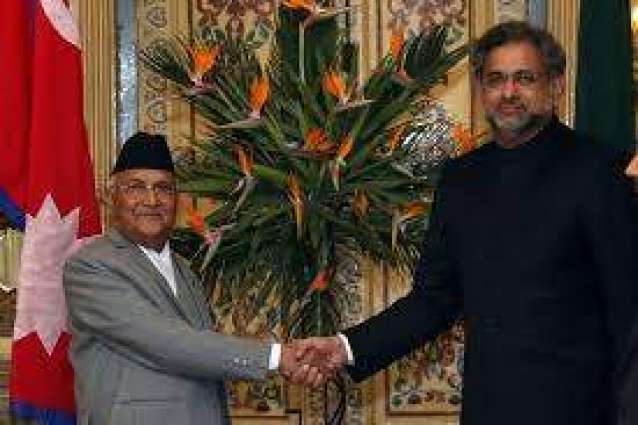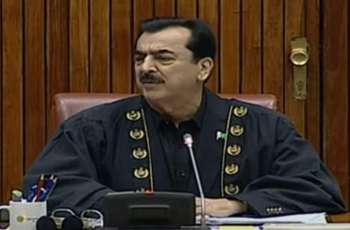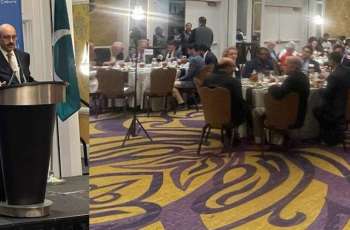Nepalese Prime Minister KP Sharma Oli and Prime Minister of the Islamic Republic of Pakistan Shahid Khaqan Abbasi during bilateral meeting here exchanged views on revitalising the SAARC summit in the spirit of the charter, according to a statement issued by the Nepalese Ministry of Foreign Affairs Monday evening.
Islamabad, (Pakistan Point News - 06th Mar, 2018) Nepalese Prime Minister KP Sharma Oli and Prime Minister of the Islamic Republic of Pakistan Shahid Khaqan Abbasi during bilateral meeting here exchanged views on revitalising the SAARC summit in the spirit of the charter, according to a statement issued by the Nepalese Ministry of Foreign Affairs Monday evening. India boycotted the holding of SAARC summit in Pakistan in 2016 and pressurised other members of the organisation to do so.
In order to isolate Pakistan in the region, India is now on a mission mode to create a regional alternative in South Asia minus Pakistan. Internal consultations within the government have already started. Pakistan will not be able to use Saarc as a lever if this oragnisation is established, people familiar with the development said. The announcement by Nepal for revitalizing SAARC Summit is likely to annoy India which is already keeping a close watch on the visit of the Pakistani Prime Minister to Nepal and wants the land locked Himalayan State to remain dependent on it.
On Tuesday Shahid Khaqan Abbasi met the Nepalese President Bidhya Devi and congratulated him on successful completion of democratic process in the country and said smooth transition would prove a positive step towards political stability and development. He termed these developments a big milestone in Nepal's march towards democracy, political stability and economic development. He stressed the need to enhance economic relations and bilateral trade which stood US$ 5.
78 million in 2016-17. He said Pakistan greatly admired the resilience of the people of Nepal who had experienced a terrible earthquake and floods. He said Pakistan always stood by its Nepalese friends and remained committed to providing educational and humanitarian assistance to Nepal. The Prime Minister invited President Bidhya to visit Pakistan at her convenience. The two leaders also expressed satisfaction over the cooperation between the two countries at international fora.
The need to reinvigorate SAARC as an important forum for regional prosperity also came under discussion. Both leaders discussed the issue of Kashmir and also shared views on progress of China Pakistan Economic Corridor (CPEC). President Bidhya Devi lauded the economic progress made by Pakistan in recent years and said the exemplary development in the country was admirable. Senior government officials of Nepal and Pakistan's ambassador to Nepal Mazhar Javed attended the meeting.
Nepal's former prime minister Pushpa Kamal Dahal Prachanda also called on Prime Minister Shahid Khaqan Abbasi here on Tuesday and discussed issues of bilateral interests. Prime Minister Abbasi congratulated Pushpa Kamal on continuation of democracy in her country, which he said was important for economic development. Former prime minister Pushpa Kamal expressed confidence that the visit of Prime Minister Abbasi would provide an opportunity to further strengthen bilateral relations between Pakistan and Nepal.
The two leaders emphasized that Pak-Nepal relations were characterized by cordiality, mutual respect and commonality of interests. Both sides exchanged views on progress on China Pakistan Economic Corridor (CPEC) and also Nepal's participation in One Belt-One Road project. Prime Minister Abbasi said the CPEC was the significant part of OBOR and had resulted in development projects including motorways, Gwadar airport, free economic zones and energy generation. The meeting also discussed the Kashmir issue and plight of human rights situation in the country. The two sides agreed that the friendly ties between Pakistan and Nepal had immense potential to be further explored and strengthened.




